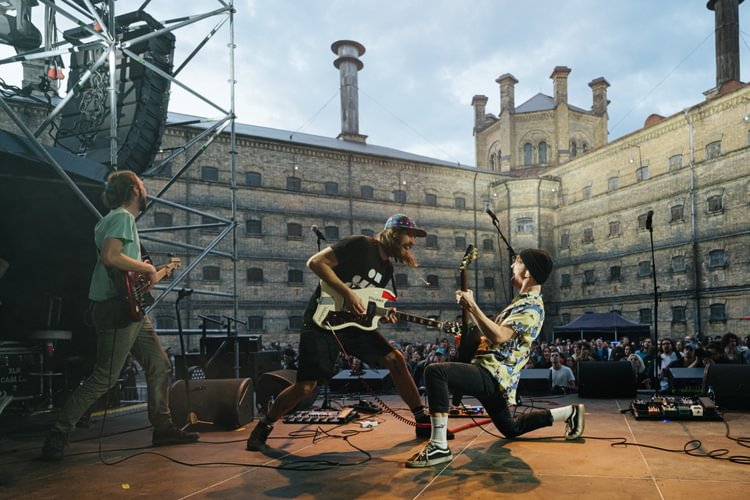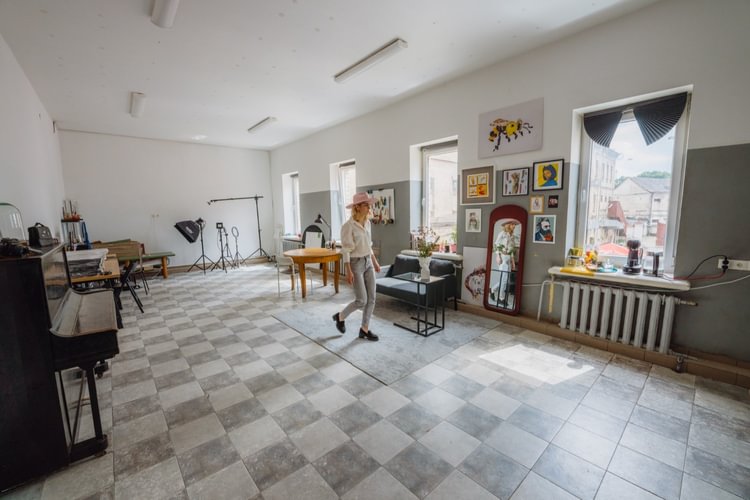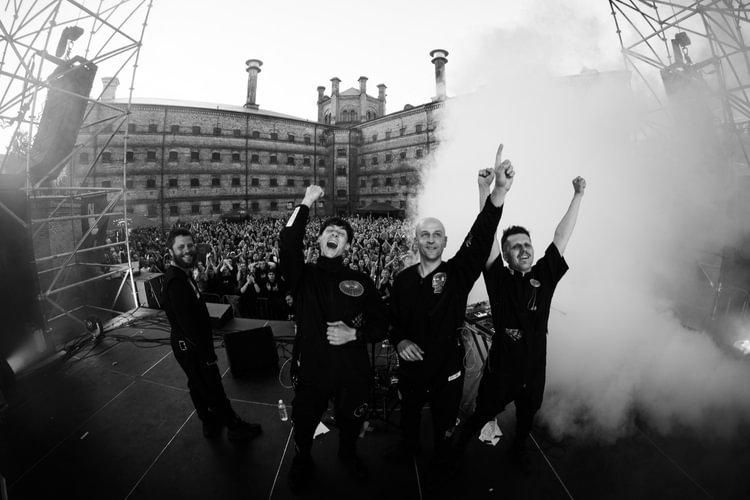From Prison to Cultural Hub: Most Notorious Prison in Vilnius Begins Public Activities
Vilnius, the capital of Lithuania, has reopened its most famous prison, globally best known as Netflix’s Stranger Things shooting location— Lukiškės Prison. Redeveloped as a center for culture and now capable of accommodating 250 artists, the project “Lukiškės Prison 2.0” has officially started the operation and begins the summer season full of unique tours, concerts, festivals, musical events, and other activities.
Lukiškės Prison, one of the most notorious facilities located in the centre of Vilnius, the capital of Lithuania, has reopened as a cultural cluster after being closed as a prison since 2019. The century-old Prison, which has attained global recognition as a shooting location for Netflix’s Stranger Things, has now been repurposed to host cultural activities, concerts, festivals, and exclusive tours for at least 2 years. The new entertainment hub, titled “Lukiškės Prison 2.0,” was opened by the band “Solo Ansamblis,” which performed to over 1000 spectators for the first time in 9 months due to persisting lockdowns.
Since the pandemic has suspended the majority of cultural and entertainment events, this summer 250 artists have the opportunity to resume their creative pursuits and enlighten Vilnius’ citizens and visitors with a spectrum of cultural experiences. For this reason, the artistic residents have set up their workshops, studies, and creative spaces within the premises of “Lukiškės Prison 2.0.”
One of the artists based in “Lukiškės Prison 2.0,” Jolita Vaitkutė, has established her studio in the former canteen. According to the artist, engaging in creative activities among so many other artists feels special despite the grim past of the premises. “The artists are great accelerators when it comes to converting the spaces into something unprecedented. Times when Lukiškės was only a prison are already long gone because we, the artistic community, gave a new meaning to the former spaces of imprisonment,” observed Mrs Vaitkutė.
The facility has started the summer season with a fully-packed cultural programme organised by “8 Days a Week,” a Lithuanian music agency, which is implementing the project “Lukiškės Prison 2.0.” The opening concert by the band “Solo Ansamblis” involved dark dancing, synthesizers, and poetry, and was held on a custom-made state-of-the-art stage with over 1000 spectators. The upcoming events will include festivals, an open architecture event, movie sessions, active leisure time events, and nationally-recognised shows.
“We believe culture has the power to reinforce and transform Vilnius, so we have to make some kind of a jolt to create new emotional ties with the former Prison. There is a lot Lukiškės has to offer to the city and vice versa, therefore, from now on we will work to create the best version of the Prison instead of looking back to its past,” said Martynas Butkevičius, “8 Days a Week” Partner.
According to Mr Butkevičius, “Lukiškės Prison 2.0” will become the facilitator of music, modern art, design, and culture.
“Hundreds of artists have responded to the open invitation and have established their artist residences, studios, and workshops in Lukiškės to mutually create, co-operate, and instill life into the former Prison. Since all of us are tired from the pandemic and its consequences, now is the best time for this conversion,” added Mr Butkevičius.
“Lukiškės Prison 2.0” is open from noon till midnight every day and also offers two unique tours. The daytime tour introduces the visitors to the Prison’s history, architecture, and the daily life of prisoners, while the nighttime tour, illuminated with flashlights, has been created to give an adrenaline boost for the most courageous visitors.
Participation in all large-scale events in “Lukiškės Prison 2.0” requires providing immunity passports. The territory also has its own testing point where visitors can undergo rapid antigen testing.



